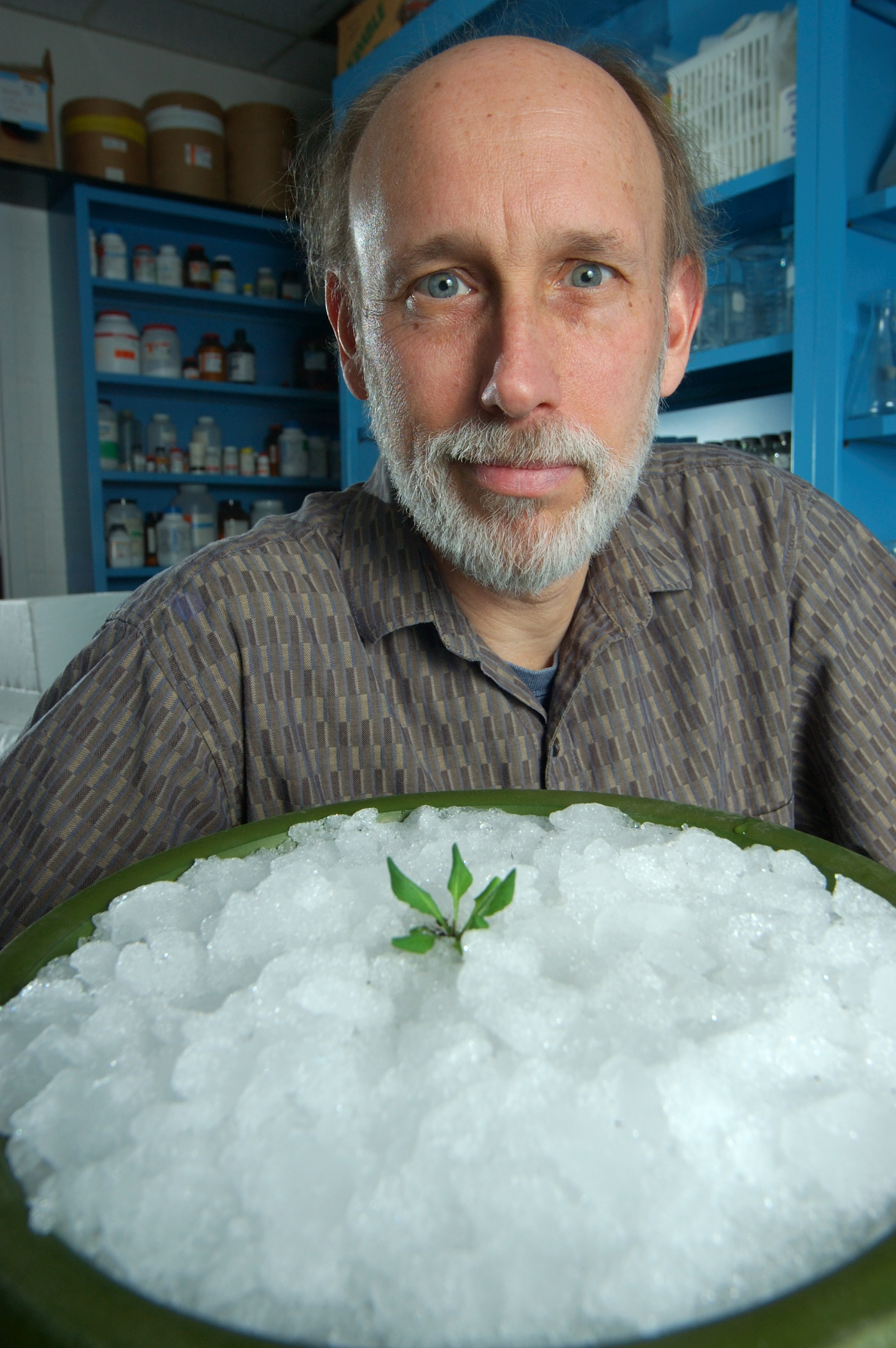East Lansing, Michigan, USA
August 27, 2012
Mechanisms that protect plants from freezing are placed in storage during the summer and wisely unpacked when days get shorter.
In the current issue of the Proceedings of the National Academy of Sciences, Michael Thomashow, University Distinguished Professor of molecular genetics, demonstrates how the CBF (C-repeat binding factor) cold response pathway is inactive during warmer months when days are long, and how it’s triggered by waning sunlight to prepare plants for freezing temperatures.

The CBF cold response pathway was discovered by Thomashow’s team, and it has been shown to be active in crop species as they ready themselves for cold weather.
“We knew that when plants are exposed to cold, nonfreezing temperatures, they can better survive below-freezing temperatures,” said Thomashow, who co-authored the study with Chin-Mei Lee, MSU plant biologist. “What this new research demonstrates, though, is that plants’ defense mechanisms are also triggered by shortening daylight.”
It’s widely known that waning daylight triggers trees’ defenses against freezing, but this has never been demonstrated in crops and other annual plants. The paper not only shows that such plants use shorter days as a cue for the impending winter, but that the mechanism also is turned off during the warm growing season.
“The CBF pathway is actively turned off during the summer to prevent the allocation of precious resources toward unneeded frost protection,” Thomashow said.
Identifying the genes involved in this process gives researchers the potential tools to fine tune this regulation and increase crop productivity, he added.
Thomashow’s research is supported in part by the U.S. Department of Energy (Division of Chemical Sciences, Geosciences, and Biosciences, Office of Basic Energy Sciences), the National Science Foundation (Plant Genome Project) and MSU AgBioResearch.
PNAS plant paper